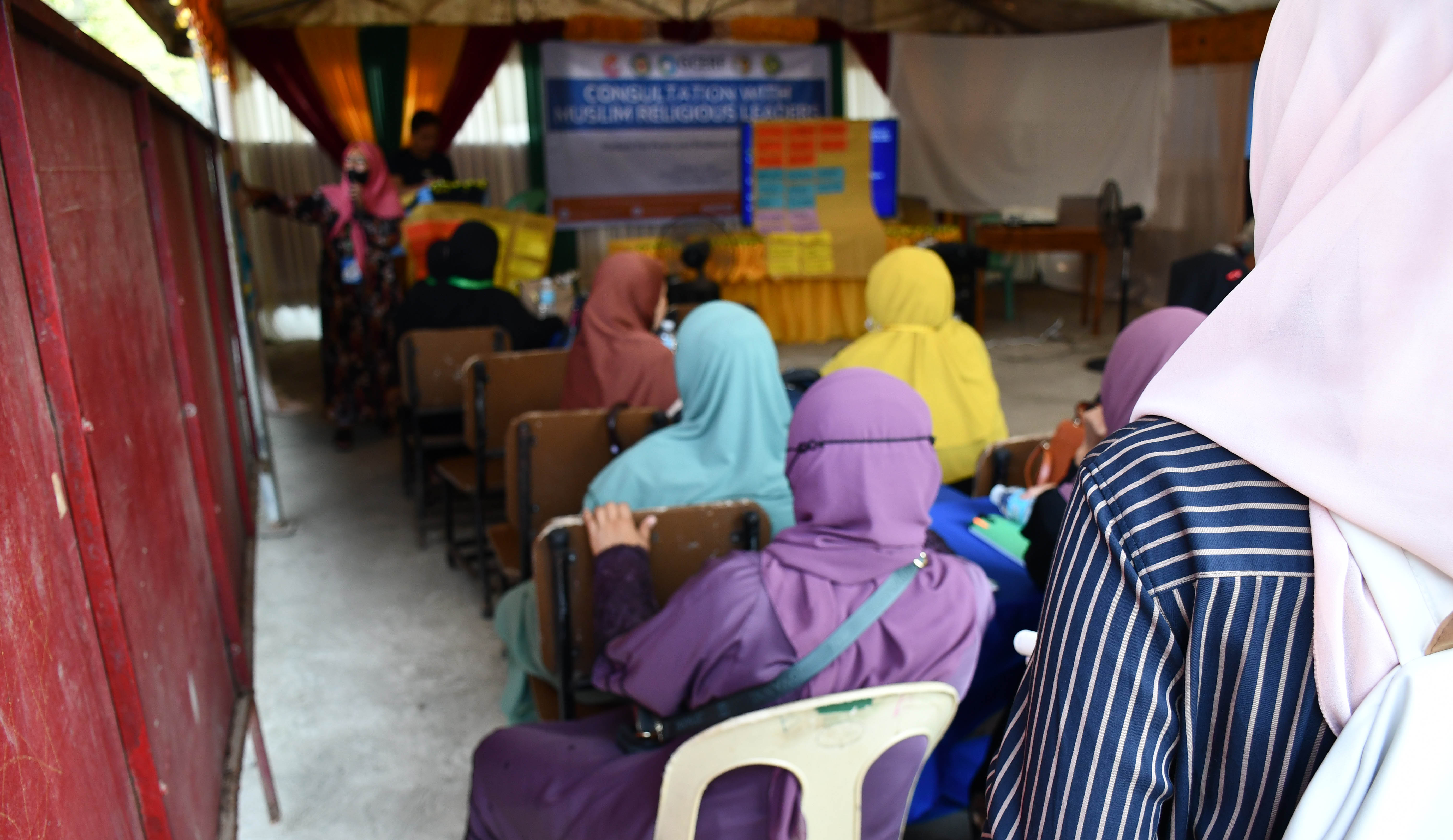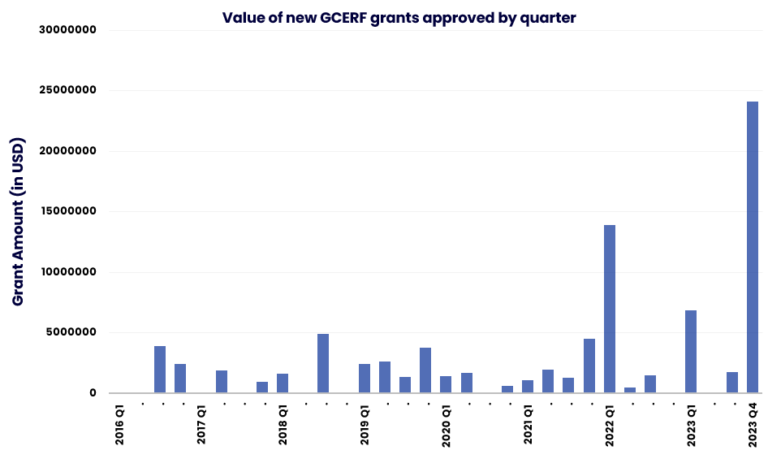Global Fund to Prevent Violent Extremism Approves a Record USD 22 Million in New Grants to Close 2023
Global Fund to Prevent Violent Extremism Approves a Record USD 22 Million in New Grants to Close 2023

The Global Fund to Prevent Violent Extremism Approves a Record USD 22 Million in New Grants to Close 2023
Geneva, 21 December: The Global Community Engagement and Resilience Fund (GCERF) today announced a total of USD 21.9 million in grants signed in the final three months of 2023, marking the steepest expansion of funding to partner countries since the Fund was founded. The 20 new grants signed in the final quarter of the year also bring the total number of agreements signed to 110. New grant funding will support prevention of violent extremism efforts in nine countries in the Western Balkans, Africa and the Middle East, including Chad, Ghana, Iraq, Kenya, Kosovo, Mauritania, Mozambique, the Philippines, and Yemen. Six out of these nine partner countries are receiving grant support for the first time.
‘We’re heartened by the signal of trust in GCERF by both civil society and government partners which these new grant agreements represent,’ said Dr Khalid Koser, GCERF Executive Director. ‘And we’re excited to see both the scope and innovation of projects which we’ll begin to fund as of 2024.’
Channeled entirely through civil society organisations, the new GCERF grants will fund projects designed to address risk factors of violent extremism which vary widely by context: In Kenya, Kosovo, Iraq, Syria and Yemen, programme activities will support rehabilitation and reintegration of child soldiers, former fighters and their families. In Mozambique and Somalia, projects will create new economic opportunities and strengthen community resilience by building social cohesion. In Ghana, grant funding is intended to reach refugees and their host communities, where risk of violent extremism is high. And support to Mauritania will flow to projects engaging women and religious leaders in prevention of violent extremism.
The grants support populations that other funding rarely reaches. “This new tranche of grant funding is an important step towards our goal of reaching ‘the last mile’ for prevention of violent extremism,” said Dr Lilla Schumicky-Logan, GCERF’s Deputy Executive Director and Head of Portfolio Management. “Our civil society partners know best what will be effective in these hardest-to-reach settings. We see the increasing urgency of their work and are committed to supporting them,” she said.

Also in the final quarter of 2023, GCERF received new funding commitments from France, Denmark, Italy, Kosovo and Norway totaling USD 6.5 million, with further contributions from other donors anticipated. Notably, Kosovo is one of a small number of GCERF implementing partner countries which has also become a donor. GCERF receives support from 19 donor governments, with the European Union, United States, Netherlands, Switzerland and Qatar as its top contributors. GCERF seeks funding through a three-year replenishment funding model, and estimates current funding needs at approximately USD 100 million for the coming three-years.
While funding community-led initiatives, GCERF works in partnership with governments and channels support according to national counter-terrorism strategies. Twenty-two countries have signed on as GCERF partners to date, with resources allocated to more than 310 local civil society organisations funded across Africa, the Middle East, South, Southeast and Central Asia, and Western Balkan States.
Image: A consultation with religious leaders for GCERF-supported initiatives to broaden teaching curricula in madaris (religious schools).
ENDS
Based in Geneva, Switzerland, GCERF is a global fund making grants to support community-led projects in countries where the risk of violent extremism is high. GCERF makes grants of an initial duration of three years. Projects supported by GCERF aim to reach vulnerable individuals and communities, equipping them to be better able to counter violent extremist rhetoric and efforts to recruit new members.
The new grants will build in features to ensure continuity beyond the period during which the countries receive GCERF funding. The long-term sustainability of community-led initiatives is a key feature of all GCERF grants. To date, projects supported by GCERF have reached more than three million people directly at risk of radicalisation and recruitment, at an average cost of only USD 39 per person.
To learn more about GCERF please visit: www.gcerf.org
Media contacts:
r.vanek@gcerf.org +41 79 5704056
s.konda@gcerf.org
media@gcerf.org
